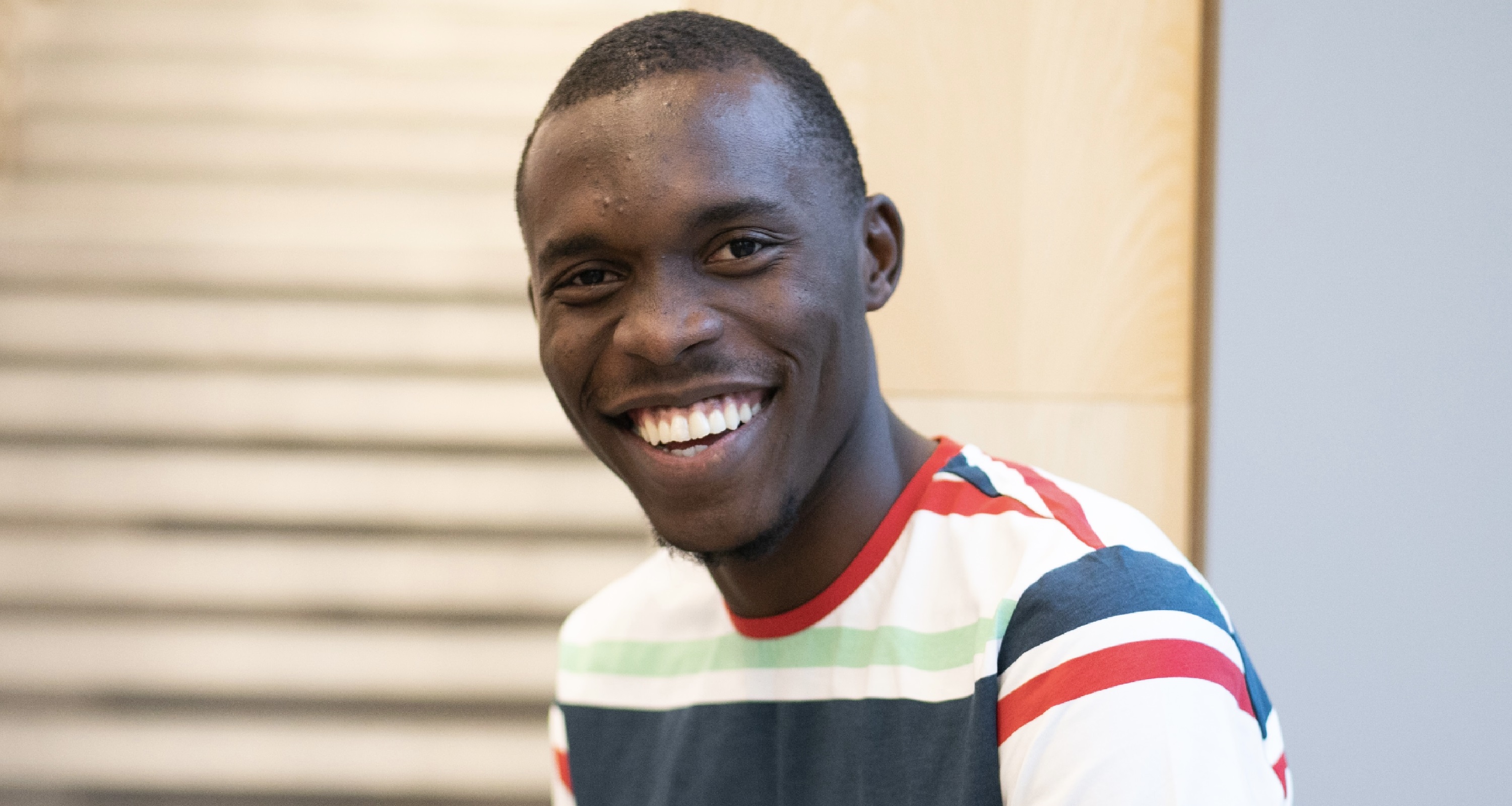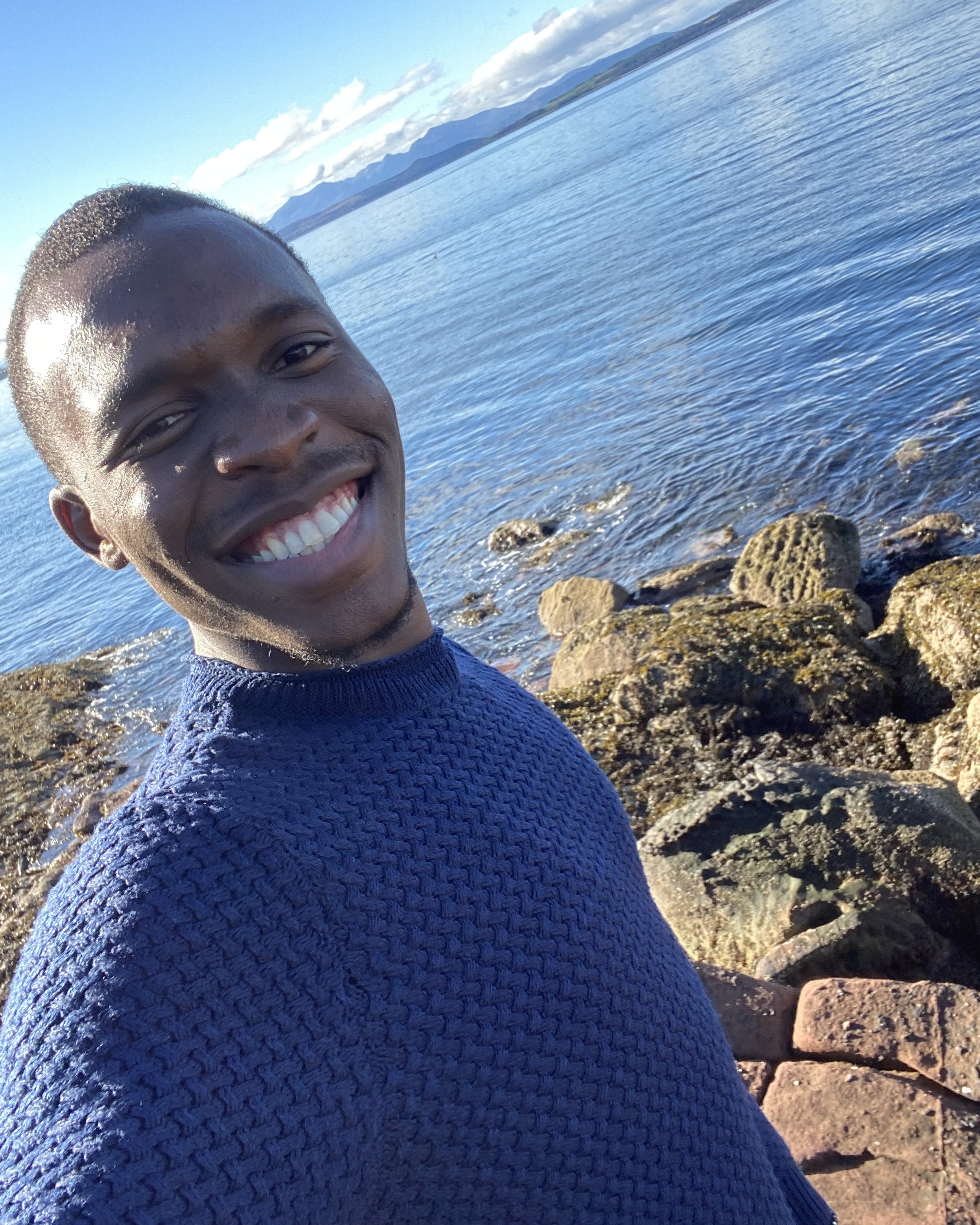‘HIV is not a death sentence – I can’t pass it on to you or anyone else’
Ese Johnson, who grew up in Nigeria before moving to Glasgow, shares his story for HIV Testing Week.

Words: Alastair James; pictures: Provided
For Ese Johnson, growing up as a young gay man in Nigeria wasn’t easy. Stigma around sexuality and sexual health in general made things difficult. Coming from a strongly religious family meant being raised to believe being gay wasn’t an option for him.
“I just thought I was damaged. I thought there was something wrong with me that needed fixing,” he tells Attitude. And he did try to fix it. After his school found he’d kissed another boy when he was 14, Ese experienced a form of ‘conversion’ therapy, which he says was “the only option”.
“It was either that or get expelled from the school and my parents would have been told,” he adds.
Pastors at his school took him through ‘deliverance’, told him of Sodom and Gomorrah, and subjected him to manual labour. Ese was forced to fill big reservoirs with water alone to prepare the school for drought seasons. It all reinforced to Ese that his sexuality made him wrong and that things would only get worse unless he changed.

Expectations of what his life should be like – education, marriage, children, etc – only reinforced that idea further. After school, Ese subjected himself to two more years of his own ‘conversion’ therapy by taking himself to church and actively suppressing his very human urges. “Every time I saw someone I fancied I felt this overwhelming sense of betrayal towards God and I felt ashamed and I felt guilty like overwhelming guilt,” Ese admits.
The start of his journey to self-acceptance came through a friend with whom he built more of an emotional connection.
“We never had sex. We never did anything that was physically carnal in the way I had always been taught to think being gay was about. I just wanted him. There was just an emotional pull [and] that was when I began to realise: this is something more, this is who I am, this is who I’m attracted to, this is the sex or the gender I want to express romantic feelings towards not just sex.”
Ese had dreams of escaping to Australia ostensibly to study public health, but also to have space to explore himself. What he loved about the idea of Australia was that it was far away from home. He applied to study his master’s degree there and just days before he planned to travel there in 2019 was told he needed to take a HIV test.
On finding out he was HIV+ Ese reveals, “To be honest, a part of me wished there was no medication because it meant I didn’t have to actually kill myself, I would die someday. And this would all be over. For almost an entire year, I was a dead man walking.
“I’d resigned in my mind that I was useless. I was dead. I was worthless, and not being able to physically take my own life felt like my punishment wasn’t enough for the shame I brought upon myself or my family.”
He did eventually tell his family in 2020. That also meant revealing his sexuality, neither of which went down well. He reasons that “It’s a very difficult pill to swallow,” especially as his family is central to their community. Being open about his life on social media now opens his family up to stigma back home.
Moving to Glasgow just before lockdown in 2020 meant Ese got the space he wanted, but the impending lockdown forced him to spend a lot of time alone and Ese was forced to confront questions he’d long ignored. Was he going to accept it or keep allowing people to oppress him?
“It really affected my mental health,” Ese says. “I’ve not had a lot of experience of being very [mentally] resilient. So it was very easy for me to slip into depression. That was around the point I was proactively contemplating suicide, and I had to go to the hospital.”
Ese is ok now, thankfully, and through sharing his story has found a sense of self-acceptance that has long evaded him. “I say to people who I am is a collective of every decision made, every person I’ve come across, and anyone who has in any way influenced my life,” he says joyfully.
Working with the Terrence Higgins Trust and its Positive Voices programme opened Ese’s eyes to the stigma he still held for himself, but also that he could turn his life around. “World AIDS Day 2020 – I remember clearly – was when I made the conscious decision to start openly speaking about my HIV status. I attended one of the Trust’s speaking sessions and I listened to someone’s story. And I just started crying.
“That was when I thought ‘my life is beautiful and I’m not going to hide it anymore’.”
And while it can be difficult on occasion to challenge negative thoughts, Ese is happy now. “I love the fact that I’m gay. Sometimes think being gay is the most fabulous thing on the planet. There are things I would never have experienced, there are people I would never have spoken to if I didn’t have to go on the journey of understanding my sexuality.”
And how about his HIV+? “Sometimes I don’t even remember. Sometimes I go to bed at night and wonder if I’ve taken my medication. It’s not the most important thing in my life anymore.”
We also chat about Ese’s experiences of dating and being HIV+. He tells Attitude there has only been one person who was put off by his status. Otherwise, everyone else has been fine with it.
Laughing, he recounts a dinner he was at when he mentioned he was HIV+ and no one reacted. “Everyone just kept eating at the table,” he continues. “And I’m like, ‘did they hear what I said?’ But also, in my mind, I thought, ‘that’s progress’.
“Those are the moments we keep fighting for – being able to speak up to make sure that everyone gets the message that someone living with HIV is just like them. It’s not a death sentence, I can’t pass it on to you or anyone else. And if anything will kill me it will be my blood sugar because I take too much ice cream.”
Finally, what’s Ese’s message for people who don’t feel they can be so open about their HIV status?
“I was reading a book recently and there was a phrase which was ‘Some people had to get out to speak out’. And they were talking people escaping an oppressive system to be able to speak out. And it made me realise there is a place of coming to terms with yourself, before taking yourself out to the rest of the world. If you don’t do that, you will get crushed.
“I definitely went through a journey of being comfortable enough to be able to open up about my HIV status before I finally put it out there. For people, that journey could take two days, it could take two years, or it could take two decades, two centuries, it could take as long as it could take. So just be kind to yourself. And just know that your story is not for anyone else except you. Your status is not about anyone else except you.”
HIV Testing Week runs from 7 – 13 February. You can order a free test kit here.
